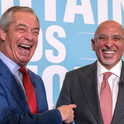Last year allegations of Muslim extremists infiltrating Birmingham’s schools dominated the papers. “Jihadist Plot to Take over City Schools,” ran the front page of the Birmingham Mail, and the national papers followed suit. The Spectator ran a provocative front cover cartoon with a Muslim schoolboy holding a Koran in one hand and a sword in the other, with the cover line "Taught to Hate." But according to a House of Commons Education Committee report, published on Tuesday, there was no city-wide jihadist plot in the first place. The cross-party group of MPs found “no evidence of extremism or radicalisation, apart from a single isolated incident…and there is no evidence of a sustained plot.” The report did, however, conclude that there were problems with governance at some of the schools involved, and that when issues round social cohesion do arise whistleblowing teachers need to feel free to speak out. It also ticked off the Department of Education for a “lack of inquisitiveness”; it dragged its feet for five months after the issue was brought to its attention.
The report’s conclusions are a sensible counterbalance to some of the over-the-top rhetoric we heard last year. The so-called “Trojan Horse” plot seemed to provoke a national crisis of identity, culminating in a Coalition initiative in June 2014 to start teaching British values in schools. These values were defined as a belief in “democracy, the rule of law, individual liberty, mutual respect and tolerance of those of different faiths and beliefs,” and it is now part of Ofsted’s remit to judge all schools on how well they are promoting these ideas. (At the end last year they published critical reports into Roman Catholic and Orthodox Jewish schools for not meeting these standards.) The head of Ofsted, Michael Wilshaw, told the committee that “We did not see extremism in [Birmingham] schools. What we did see was the promotion of a culture that would, if that culture continued, have made the children in those schools vulnerable to extremism.” While accepting that “cultural isolationism” was a problem, the Report, rightly in my view, disagreed with Wishaw, quoting with approval a Birmingham council investigation that there was a “lazy conflation” between conservative Islamic practices and questions of violent radicalisation.
Unpicking all this requires us to look more closely at what actually went on in Birmingham. In March 2014, Birmingham council disclosed that it had investigated a number of state schools, which it suspected had been taken over by conservative Muslims. Late in 2013 the council had received an anonymous letter that referred to a so-called “Trojan Horse” plot to infiltrate multiple schools and make them more Islamic in character. Although the letter was subsequently revealed to be a fake, there was still concern that the allegations had some truth to them. After some foot-dragging, the Council started an internal investigation headed by Ian Kershaw. The Education Secretary of the time, Michael Gove, then appointed Peter Clarke, a former head of the Counter Terrorism Branch, to conduct his own separate inquiry. At the time Bob Jones, Birmingham’s police and crime commissioner, criticised the choice of Clarke, someone with no experience in education and whose previous job seemed to muddy the waters of what was already a sensitive issue.
In addition, Ofsted swooped in for an emergency inspection. Neither Kershaw nor Ofsted nor Clarke found any evidence of terrorism or violent extremism being taught to pupils or encouraged in assembly—apart from one example, when Clarke said a teacher apparently showed a jihadi video to pupils. (Clarke did not specify which jihadi video or the context in which it was introduced.) After visiting the school at the centre of the controversy, the 98 per cent Muslim Park View Academy, Ofsted found that the school was “not doing enough to keep students safe, including raising students’ awareness of the risks of extremism.” Implementation of Prevent—the government programme to safeguard against radicalisation—only took place for years seven and eight (ages 12 and 13) and not for older pupils; teachers had not been sufficiently trained to recognise the risks to pupils of arranged marriages or “early signs of extremist behaviour.” So the school was blamed for not actively promoting tolerance—not for promoting intolerance. From being rated as outstanding, Park View was downgraded to being in special measures, meaning the school’s leaders have to come up with an action plan and are subject to more frequent inspections. (Park View is now under new management.)
Park View was not what you might call a typical English secondary school. Boys and girls were taught separately in religious education and personal development lessons, and so did not have the chance to “share opinions,” said Ofsted. The inspectors also found evidence of a culture clash between teachers and the pupils’ parents. At another school, Oldknow Academy, the Christmas assembly was discontinued and visits from a church cancelled. Raffles and tombolas were banned (gambling is forbidden in Islam). There was a kerfuffle over a production of The Wizard of Oz that fell during the month of Ramadan. Some parents thought that performing the musical when pupils were fasting would be inappropriate. The non-Muslim school principal compromised by allowing the production to go ahead with singing, but without musical accompaniment.
According to Lee Donaghy, assistant principal of Park View, who gave evidence to the Education Committee, such accommodation of Islamic beliefs—including allowing pupils to pray at lunchtime—contributed to the success of the school. All the reports commented on the excellent standard of behaviour across the schools under examination, and noted that their academic results are exceptional—in 2013 Park View got 75 per cent A*-C at GCSE level—given that they are located in some of the most deprived areas of the country. Yet what Donaghy sees as sensible measures to adjust the school’s ethos to match those of the pupils’ cultural background was, from Peter Clarke’s point of view, “the reinforcement of Muslim identity to the exclusion or disparagement of others.” Clarke found it disturbing that at Park View and Oldknow, “Islamic posters, slogans and instructions were openly displayed,” including quotations from the Koran. The main foreign languages studied were Urdu and Arabic not French and German. It does seem like governors and some teachers were trying to create the atmosphere of a madressa or Islamic school in what was—in name at least—a non-religious state school. The governors also assumed that all Muslim parents would want their children to be brought up with a strictly Islamic ethos—true for some perhaps, but not all. At Park View’s Year 11 Prom, staff were surprised that some girls attended without wearing the headscarves they habitually wore to school.
One intriguing aspect of Clarke’s report was his examination of a private WhatsApp group, where male Muslim teachers from Park View exchanged messages. Started by the former acting principal Monzoor Hussain, most of the 3,000 messages were innocuous but some, said Clarke, “either promoted or failed to challenge views that are grossly intolerant of beliefs and practices other than their own.” Clarke reproduced what he regarded as the most damning exchanges. The jokes about women preparing dinner in the kitchen—“Perpetual role serving men:)” says Teacher H—are a depressing reminder of the kind of exchanges you sometimes hear in male-only Asian gatherings. More seriously, there are homophobic comments on the alleged preponderance of homosexuality in Pakistan. A discussion over how to cope with mixed-sex education shows a variety of views: one teacher doesn’t want to create an environment that “promotes sexual promiscuity”, while another disagrees, stressing the importance of teaching boys and girls together so they can learn “to interact with the opposite gender.” There are some childish anti-Israel images shared (its flag on a loo roll). None of these ideas or images, Clarke admits, were ever introduced into school assemblies but nonetheless, they are hardly ideal from people to whom parents entrust their children.
There are, however, some conversations that Clarke disapproves of that seem perfectly ordinary. Surely it can’t be regarded as unacceptable to share a Glenn Greenwald article from The Guardian arguing that Lee Rigby’s murder should not be classified as terrorism? Or a piece about pro-European bias in British history books, to which one teacher responds by saying pupils should study the 14th-century Arab historian and geographer Ibn Khaldun, for he will “inspire the youth to stand upon his shoulders”?
As this week’s Education Committee report argues, by creating academies and free schools, the Coalition has been encouraging interest groups to take over state schools and run them how they see fit. In 2011, Michael Gove advised Catholic schools to become academies to avoid councils imposing on them “a set of values founded on their own moral and cultural relativism.” No doubt the Muslim leaders who took over Park View and Oldknow were also listening. Yet after the “Trojan Horse” reports, Gove tried to take back control by making it compulsory for all schools to teach “mutual respect and tolerance of those of different faiths and beliefs”—sentiments to be applauded, but which sound suspiciously close to the “cultural relativism” Gove told Catholic schools they could avoid.
As well as wishing to maintain cultural continuity, one reason some Muslim parents want their children educated in a Muslim environment is because they believe they will perform better academically. As noted above, GCSE results at Park View were good. (Though after the “Trojan Horse” scandal broke the percentage of pupils getting A* to C fell from 75 to 58 per cent, a drop attributed by one Birmingham councillor quoted in the Committee report to the stress caused by media coverage.) According to the Wolf index, a metric that measures pupils’ rate of improvement from Key Stage 2 exams to GCSEs, in 2014 Park View was the sixth best secondary school in England. Interestingly three schools in the top 20 of the Wolf index were state-funded Muslim girls schools: Tauheedul Islam Girls High School in Blackburn, Preston Muslim Girls High School and Bolton Muslim Girls School. In fact, nearly half the “overachieving” schools on the list were religious.
Faith schools might perform well academically but I feel uneasy about Muslim pupils—or those of any other faith—growing up isolated from wider society. This can lead to a sense of alienation from their home country, and also affect their economic prospects if they find it difficult to work in mixed environments. If we are to allow faith groups to take over state-funded schools, we should also ensure that a percentage of those attending come from other faiths: more Muslims in Christian schools, more Jews in Muslim schools. Where for demographic reasons schools become racially monocultural, the head teacher should be incentivised to mix up their intake. We should discourage both white flight and encourage Muslim parents to see the benefits of integration. It’s certainly a laudable idea to teach British values in school—though I would argue that “democracy” and “tolerance of other cultures” are not the exclusive preserve of one nationality—but a genuinely diverse classroom would enable pupils to discover in practice other communities and cultures. Then perhaps we would all learn how to negotiate better the inevitable clashes of outlook that arise from living in a multicultural society. And maybe even have our own assumptions challenged about how people different from ourselves lead their lives.
The “Trojan Horse” fiasco can teach us some valuable lessons
No evidence has been found of a city-wide jihadist plot in Birmingham schools—but isolationism needs addressing
March 20, 2015

Models of Integration: Muslim students attend a design course at the London College of Fashion (© Mark Tillie/Getty Images)











